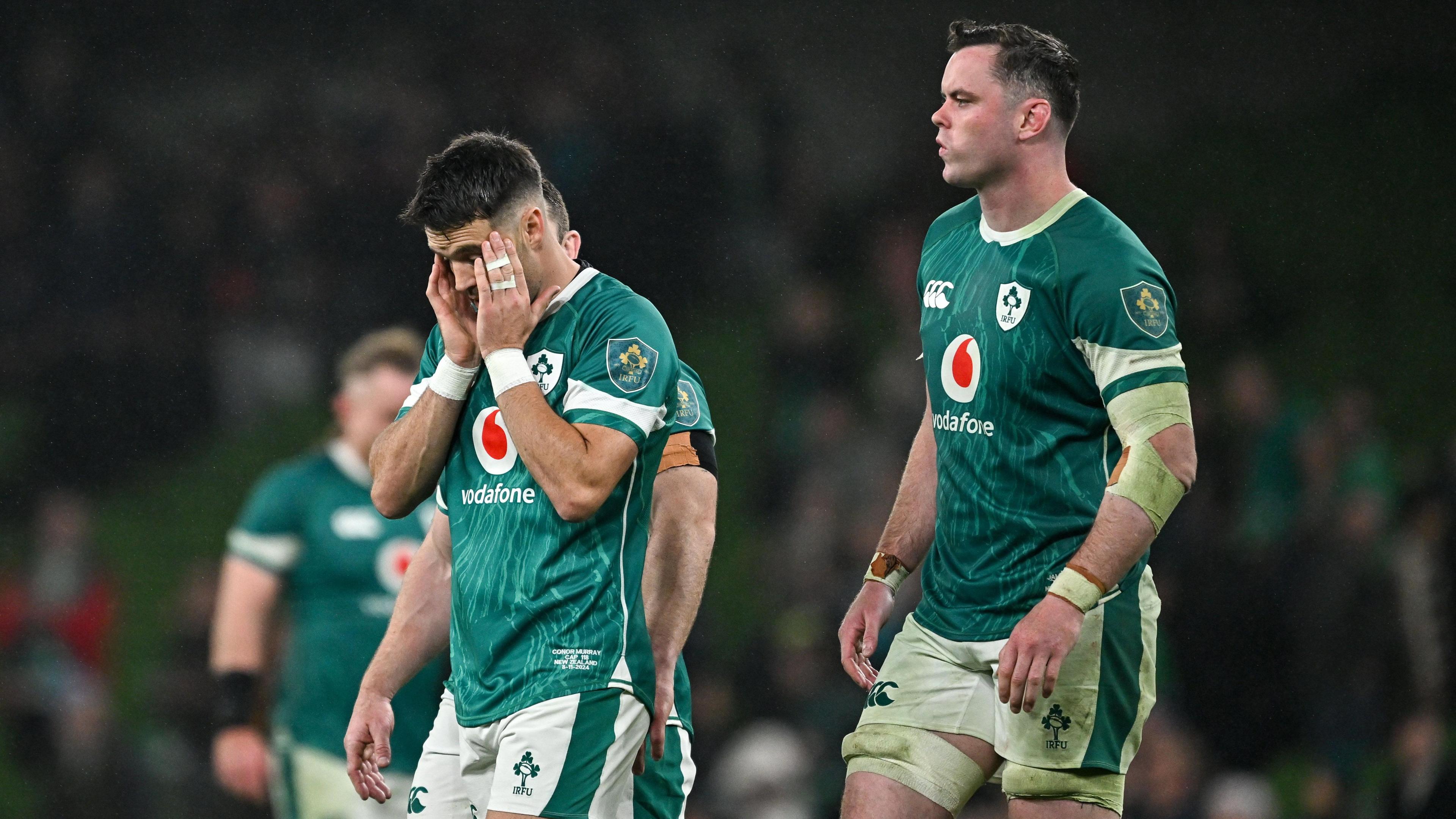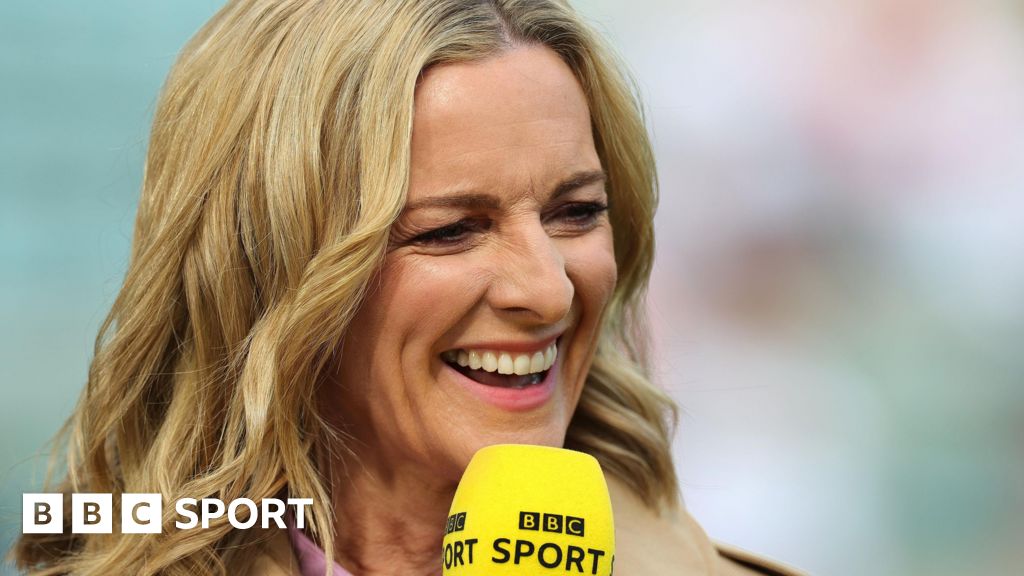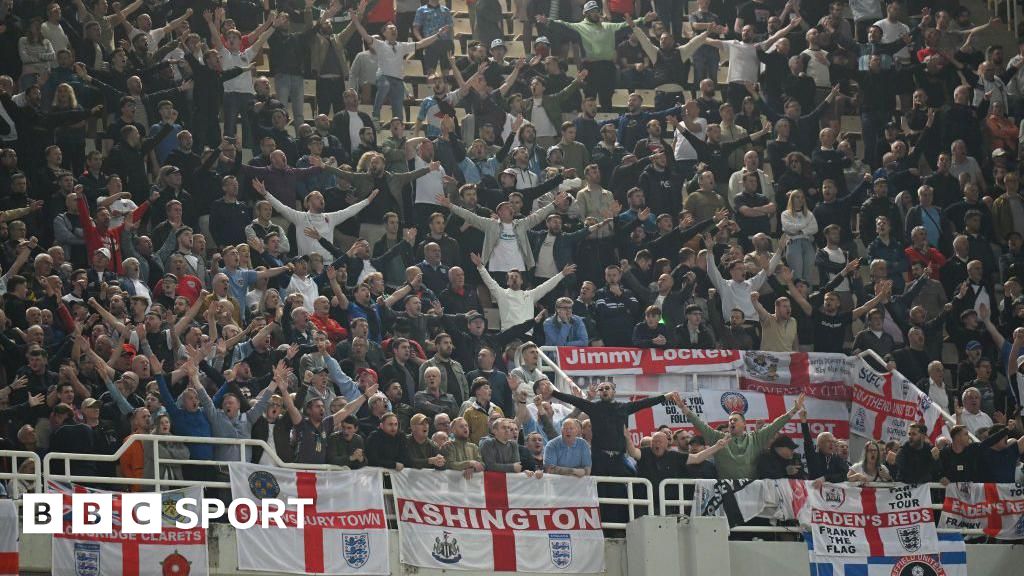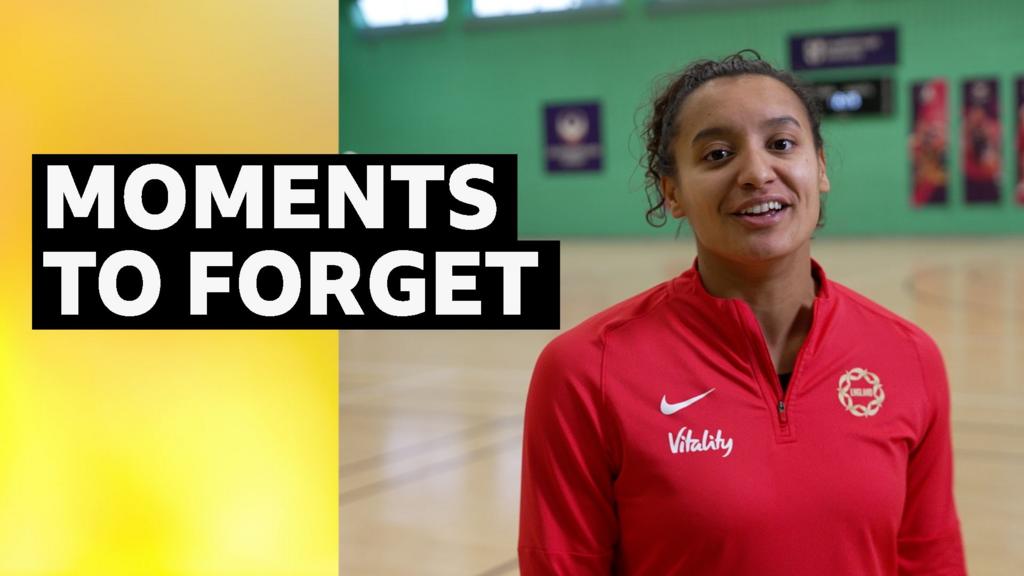ARTICLE AD BOX
 Image source, Getty Images
Image source, Getty Images
The All Blacks loss was Ireland's third in the past five Test matches
Jonathan Bradley
BBC Sport NI Journalist
Autumn Nations Series: Ireland v Argentina
Venue: Aviva Stadium, Dublin Date: Friday, 15 November Kick-off: 20:10 GMT
Coverage: Commentary on BBC Radio 5 Sports Extra, BBC Sounds and BBC Radio Foyle; live text commentary on the BBC Sport website & app
A week ago, Ireland were ranked as the best rugby side in the world, unbeaten at home in three and a half years, and viewed as solid favourites when hosting New Zealand.
Seven days on, after a 23-13 defeat by the All Blacks and a performance that wing Mack Hansen described as "not us", Ireland are now facing the most serious questions posed of them since the early days of Andy Farrell's reign, having lost three of their past five Test matches.
Those involved could be forgiven for marvelling at how quickly the narrative can shift, while the head coach himself has been quick to dismiss the notion that his experienced side are running out of road after a period of sustained success.
However, in his final games before an eight-month sojourn to take charge of the British and Irish Lions, plenty will now be looking for evidence of further cracks when Argentina come to Dublin on Friday evening.
For some filing out into the Dublin night last week, the comprehensive nature of Ireland's loss will have brought back unwanted memories of a similarly emphatic defeat - against England in the Six Nations opener of 2019.
Ireland went into that game ranked number one in the world too, coming off what may well go down as the greatest year in their history. Nobody predicted then that the fixture would come to mark the beginning of the end for Joe Schmidt's brilliant Irish side.
The age profile and lack of evolution in Farrell's preferred line-up is already providing cause for concern that history could be repeating itself.
Of the starting side selected to face the All Blacks, just two - fly-half Jack Crowley, 24, and 23-year-old lock Joe McCarthy - are under the age of 26. Eleven of the 23, in contrast, are already beyond their 30th birthdays.
While there has been a change in skipper to Caelan Doris, 26, only three of those involved last Friday were not at the World Cup 12 months before and one of those was 37-year-old prop Cian Healy who missed the tournament through injury.
Ireland are clearly a side built for the here and now, a fact that will ensure each defeat brings with it an extra layer of scrutiny.
Image source, Inpho
Image caption,Only three players who were not at the 2023 World Cup featured against the All Blacks
Requiring a result to get their autumn back on track, Argentina are hardly ideal opponents.
While last Friday's defeat saw Ireland beaten by the side who have got the better of them in the past two World Cup quarter-finals, this weekend brings them head-to-head with the most frequent thorn in their side at those global showpieces.
Los Pumas have knocked Ireland out of three World Cups, in 1999, 2007 and 2015, although the most recent of those successes is their only win from the past nine meetings between the pair.
On their last visit to Dublin three years ago, they were beaten 53-7 when, in contrast to this week, Ireland were coming in buoyed by a memorable victory over the All Blacks.
While the core of the Irish team and staff remains the same, Argentina have had two different head coaches since then. Mario Ledesma was followed by Michael Cheika for last year's World Cup with the now Leicester Tigers coach handing over to Felipe Contepomi after the semi-final exit in France.
The former fly-half, who preceded Johnny Sexton in the Leinster 10 jersey, worked with plenty of Ireland's matchday 23 during his spell as the province's assistant coach between 2018 and 2022, and has masterminded some impressive results in his short time at the helm of his country.
Led by the likes of Saracens' Juan Martin Gonzalez and Juan Cruz Mallia of Toulouse, his Argentina side beat South Africa, Australia and New Zealand during the Rugby Championship this year and split a July series with France, while developing an attacking brand of rugby.
Image source, Getty Images
Image caption,Argentina boss Felipe Contempomi was part of the Pumas side that knocked Ireland out of the 2007 World Cup
Ireland have numerous areas for improvement. While their defence was an area of strength against the All Blacks, their attack showed little ability to build pressure outside of the 10 minutes of Jordie Barrett's yellow card.
New attack coach Andrew Goodman will need time to put his own stamp on things, but in the short term the side simply must make fewer errors on the ball.
The line-out, such a reliable launchpad of scores for Ireland, has been struggling since before the World Cup, while contact work in the breakdown area has been lacking too. There appears a lot to fix in the space of seven days.
A convincing victory against solid opposition on Friday, especially if some of the squad's younger members are to the fore, would go some way to quietening such doubts.
Anything less, and those calls for some renewal will only be felt more keenly and widely.

 2 hours ago
1
2 hours ago
1








 English (US)
English (US)